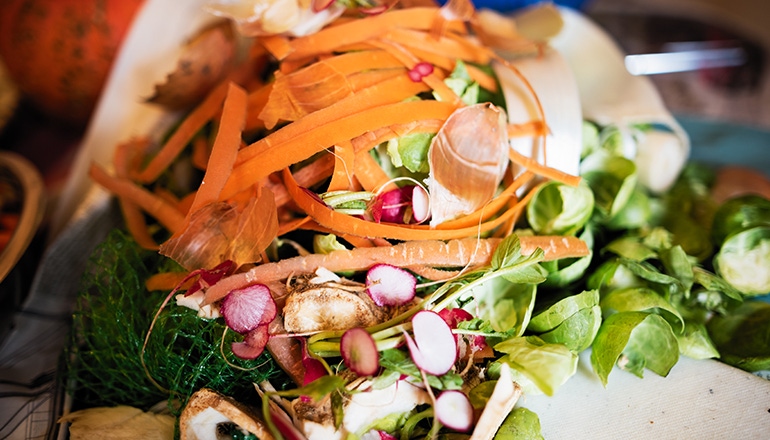November 25, 2020

As Americans prepare to celebrate Thanksgiving, USDA and EPA are reminding families to consider the environment and be mindful about wasting food.
Each year, the average American family of four loses $1,500 to uneaten food — that’s about 1,160 pounds of food.
"Over 70 billion pounds of food waste reaches our landfills every year, contributing to methane emissions and wasting energy and resources across the food supply chain,” said EPA Administrator Andrew Wheeler. “This holiday season, we must all do our part to help people and the environment by preparing only what we need, cutting down our food waste, and sharing or donating what we can to feed others.”
Tips for reducing food waste
Make a list: Before you go to the grocery store or order online, plan and make a list to reduce the chance that you’ll buy more than you need. Research shows that making a written list can help shoppers avoid impulse purchases, which may include foods they don’t need.
Save scraps: Freeze scraps like vegetable peelings and meat trimmings for your future culinary creations. Use them later in savory broths and hearty soups to provide comforting warmth on cold days. Or cook the scraps to make other foods or ingredients. You can season potato peelings and bake them into chips, or sauté extra chopped onions to make recipe-ready caramelized onions.
Use or share leftovers: Place food in clear containers marked with the contents and date. That can increase the chances that the leftovers in the fridge will be remembered and actually eaten.
Be creative with leftovers: Extra rolls and bread that are getting stale can be made into bread pudding. Try your hand at making homemade turkey stock with the bones, or make turkey chili with leftover meat. Whip extra buttermilk or cream into French toast batter. You could even start a new family tradition of serving a pot of turkey soup on the weekend after Thanksgiving.
Donate: If you have extra cans of pumpkin pie filling, green beans, or cranberry sauce, consider donating them to your local food bank to help those in need. Visit the Feeding America website.
Compost: Composting your food scraps can help your garden grow. Learn how to get started with composting resources from the U.S. Environmental Protection Agency. Or, look into local community compost or compost collection/drop-off opportunities. A number of cities and counties across the country are making composting an option for their residents.
Don't landfill: The food on your table is the result of many resources. Fresh water, energy, land, and labor are used to create, process, transport, store, market, and prepare that food. Do what you can to keep your food out of landfills so that all of those resources are not wasted. Food rotting in landfills emits methane, a powerful greenhouse gas, so by keeping food out of landfills you are helping the climate. EPA estimates that more food reaches landfills than any other material in everyday trash, constituting 24% of municipal solid waste. This wasted food contributes to landfills being the third largest source of human-related methane emissions in the United States. Reducing food waste and redirecting excess food to people, animals, or energy production provide immediate benefits to public health and the environment.
Source: USDA, EPA
About the Author(s)
You May Also Like




